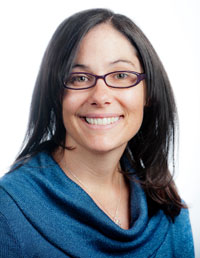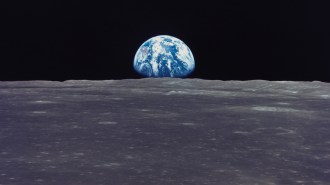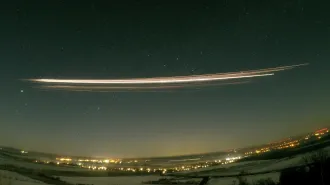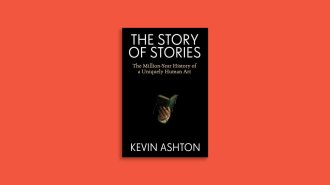Surprises at new frontier trump a tool’s potential power
By Eva Emerson
- More than 2 years ago
 Lists invite disagreements, as I’ve said before (see last year’s Top 25 science stories, for example). And Science News molecular biology writer Tina Hesman Saey was not alone in arguing that the new gene-editing tool CRISPR/Cas9 should snag the top spot this year over Pluto. Readers taking part in a poll ranking our top five picks for science story of the year also weighed in for CRISPR (see this issue’s reader feedback). Even astronomy writer Christopher Crockett noted, “Well, CRISPR does have the potential to wipe out infectious disease and get rid of invasive species, so I suppose it might have one or two more practical benefits than the exploration of Pluto.” But, he added, “need I remind readers which one has ice volcanoes?”
Lists invite disagreements, as I’ve said before (see last year’s Top 25 science stories, for example). And Science News molecular biology writer Tina Hesman Saey was not alone in arguing that the new gene-editing tool CRISPR/Cas9 should snag the top spot this year over Pluto. Readers taking part in a poll ranking our top five picks for science story of the year also weighed in for CRISPR (see this issue’s reader feedback). Even astronomy writer Christopher Crockett noted, “Well, CRISPR does have the potential to wipe out infectious disease and get rid of invasive species, so I suppose it might have one or two more practical benefits than the exploration of Pluto.” But, he added, “need I remind readers which one has ice volcanoes?”
CRISPR/Cas9 is indeed an exciting technological advance with the promise to change the world (with all the ethical baggage that accompanies such power). It has also attracted a lot of attention this year. It elicits deep questions about the power of science and how we might want to limit it. (Is it OK to eliminate a pernicious species like mosquitoes? Should we permanently change human genes in future generations?)
So why is CRISPR No. 2 and Pluto No. 1? For all its promise, CRISPR is a method. It’s a story still being written. The practical benefits are yet to come. It could change the world, or not. Pluto, on the other hand, is about expanding knowledge, about seeing what we have never seen before, about discovery at its most basic. Seeing a faraway planet for the first time is whiz-bang; it’s a new frontier. And it’s not what we expected, as SETI scientist Mark Showalter told Crockett: “No matter what you predict about Pluto, it always seems that it’s something more bizarre than what you had in mind.”
Pluto also had stunning photos. And ice volcanoes. Even Saey eventually agreed: “It would be heartless of me to suggest that Pluto suffer yet another demotion.”
Technology and basic knowledge are both important in science. We are committed to covering both. But my favorite will always be the discovery, the new science, the light shed on what was once dark.







